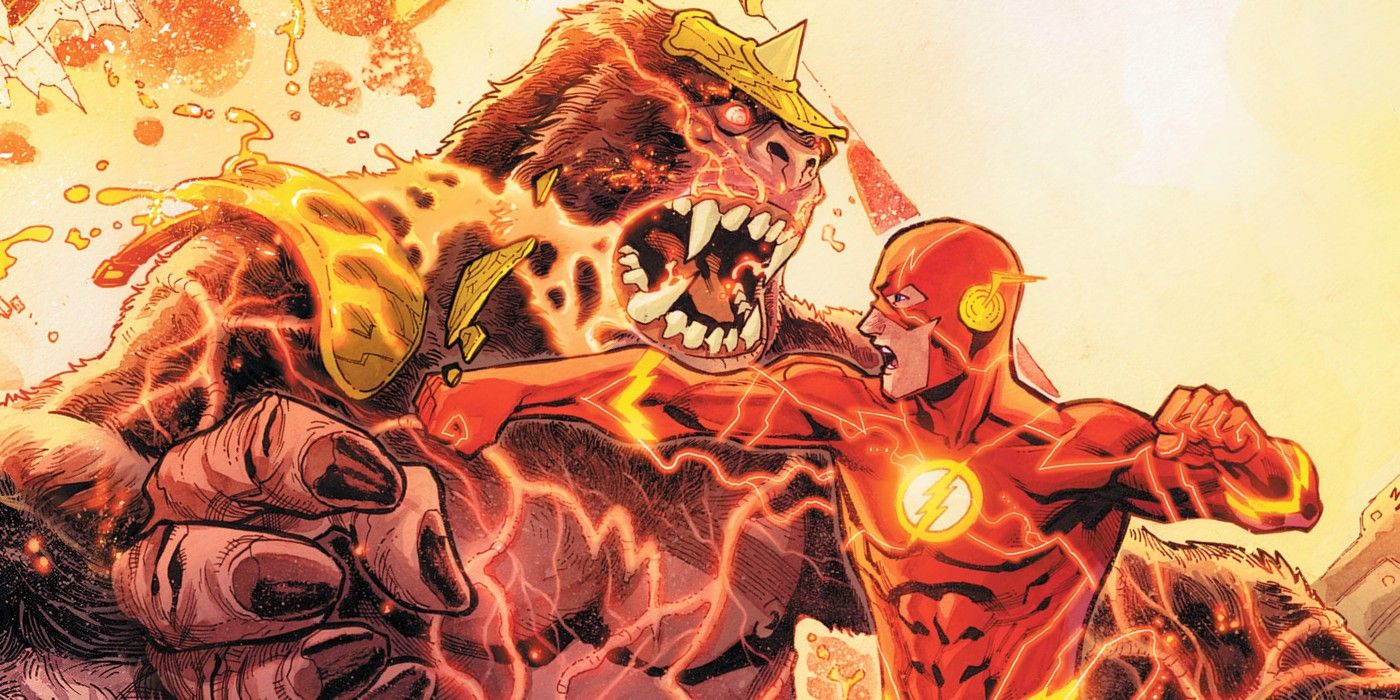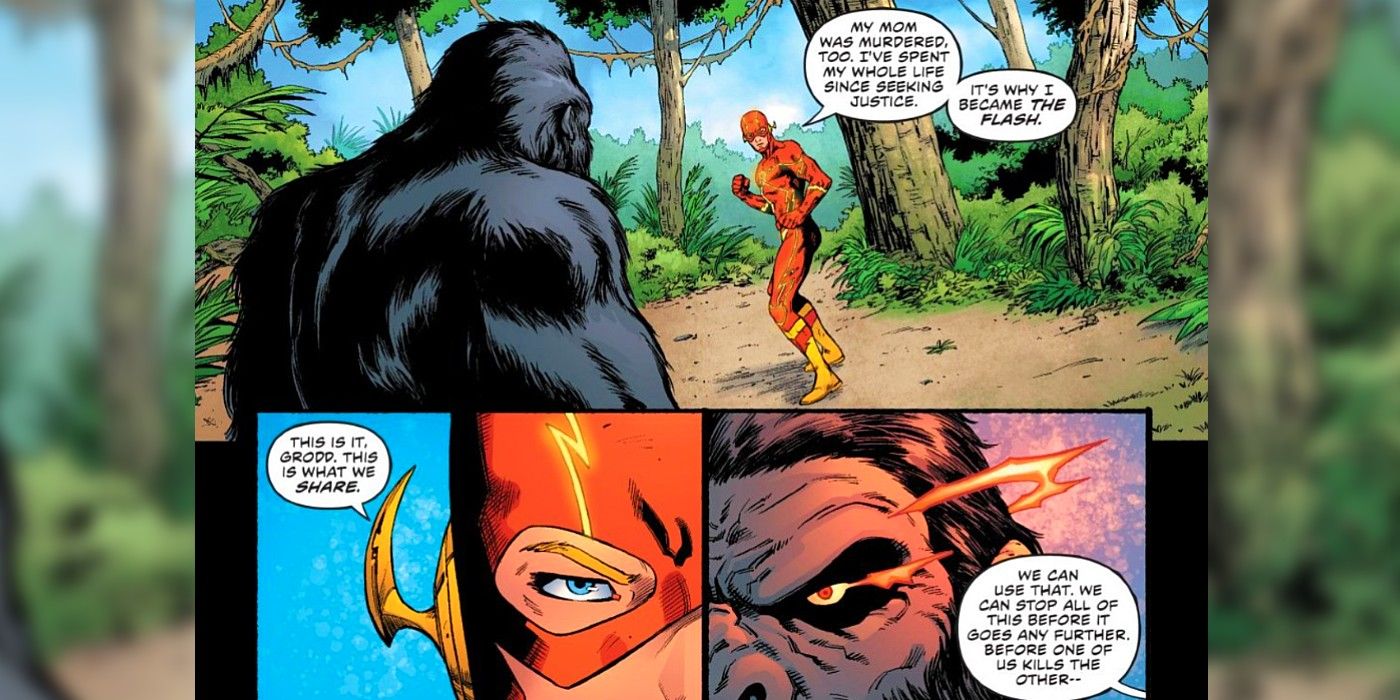When it comes to bad guys, the Flash has some of the most creative villains in comics. Yes, Batman has an impressive menagerie of deranged killers, but the Flash's less lethal foes - the Rogues - are bank robbers with unique gimmicks involving mirrors, weather manipulation, and joke-store gadgets. Of course, that doesn't mean the Flash spends any less time in danger. While the Rogues tend to be out for loot, villains like the Reverse Flash hate Barry Allen with a vengeance, and at least one of them - Gorilla Grodd - would be more than happy to literally eat his brain.
Introduced in 1959's The Flash #106, Gorilla Grodd is an evil, super-intelligent gorilla who can use his telepathic "force of mind" to control enemies, frequently using it to interrupt the Flash's speedster heroics and turn him into a sitting duck for his incredible strength and massive teeth. Grodd is generally depicted as a warlord whose chief aim is to seize control of the secret African civilization of Gorilla City - an advanced settlement of super-intelligent apes - but in DC's Beach Blanket Bad Guys Special #1, a more sympathetic motivation is revealed, and it's one he shares with his super-fast nemesis.
Though he eventually went on to become the Flash, Barry was actually fighting crime as a forensic investigator long before he got his powers. The heroic spark was lit by the unexplained murder of his mother - a crime which he only solved years into his heroic career, discovering that his time-traveling enemy, the Reverse Flash, had changed Allen's past as part of his obsession with the hero. Barry was ultimately able to accept the murder only after the Flashpoint event, in which his attempts to save his mother seemingly plunged the timestream into world-ending chaos. It's no surprise, then, that when he finds out Grodd's mother was also murdered, he tries to reach out to the brutish villain.
After Gorilla Grodd uses his telepathic powers to force his fellow gorillas to fight to the death during a public celebration, Flash almost runs in half-cocked, but instead he applies his forensic skills, examining historical documents and carrying out interviews. Through this, he discovers that Grodd's mother was killed by three adult male gorillas while trying to get a young Grodd access to water during a drought. Since the celebration Grodd interrupted was intended to honor the beginning of monsoon season, Flash reasons that he couldn't bear the idea of his mother's killers being out there somewhere, celebrating freely.
Gorilla Grodd's response is cryptic. He first attacks Barry but, after Barry uses Grodd's telepathic connection to share a memory of the very moment he lost his own mother, Grodd seemingly relents, settling for cutting a deep slash into the chest of the paralyzed Flash. Grodd reflects that he was not punishing his mother's killers, but instead attempting to show the citizens of Gorilla City how weak and complacent they have grown in their newfound "civilization." Noting that his mother's sacrifice taught him, "Mercy is far rarer than rain," Gorilla Grodd chooses to spare Flash, seemingly chastened by their connection, though not so much that he was anything less than his usual deadly self in their next encounter.
The story is a fascinating glimpse into the mind of one of DC's most brutal, animalistic killers, offering a rare moment of connection between the Flash and the villain with whom he's usually perceived to have the least in common. Sadly, while the death of Barry Allen's mother left him with a dedication to truth and justice, Gorilla Grodd instead learned how violent and uncaring the world can be - what makes him a villain is that he chose to adopt these qualities rather than, like the Flash, fighting against them.


